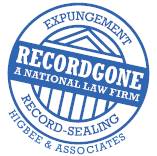The Indiana Court of Appeals ruled today that judges do not have discretion to deny a valid petition for expungement of a low-level felony or misdemeanor conviction. This was the first test in the appeals court of Indiana’s 2013 expungement law, and the appellate court held that the use of the word “shall” prevents judges from exercising discretion in deciding these expungement requests.

Details of the Initial Court Case
In 2004, the defendant pled guilty to a Class D felony for sexual misconduct with a minor. After successfully completing probation, the court granted defendant’s petition to enter his conviction as a Class A misdemeanor. An expungement petition was filed seeking to expunge his conviction under Indiana Code section 35-38-9-2, which applies to misdemeanor convictions, including Class D felonies reduced to a misdemeanor.
Why the Expungement was Denied
The expungement statute provides that if the court finds by clear and convincing evidence that all requirements of the expungement statute are satisfied (such as no pending charges and no convictions in the previous five years), the court shall order the conviction records expunged. The defendant in this case satisfied the requirements of IC 35-38-9-2, yet the trial court denied the expungement. The judge relied on Indiana Code section 35-38-9-9(d), which requires the trial court to consider a victim’s statement before deciding on expungement. The defendant appealed the denial.
How the Expungement was Overturned
The Court of Appeals determined that the word “shall” in Section 35-38-9-2(d) is mandatory language requiring expungement when the conditions are satisfied. The court reasoned that this interpretation does not make Section 35-38-9-9(d), requiring the court to consider the victim’s statement, meaningless, because that section also applies to other sections that say judges “may” grant expungement, such as for expungement of more serious felonies. The use of different language in the expungement statutes indicates the legislature wanted to give judicial discretion in some cases and provide for automatic expungement in other cases.
The court’s opinion reads, “[t]he legislature intended to give individuals who have been convicted of certain crimes a second chance by not experiencing many of the stigmas associated with a criminal conviction—especially where an individual has completed the requirements established by the trial court and has since been a law-abiding citizen.” In their opinion today, the Court of Appeals supported and furthered that policy objective.
House Bill 1155
In its opinion, the Court also noted that under House Bill 1155, which was signed into law by the Governor on March 26 and goes into effect July 1, 2014, the court will no longer be required to consider the victim’s statement, even in discretionary expungements. Those amendments and the Court in this decision acknowledge the importance of expungement in allowing former offenders to move forward. For a summary of the changes to the expungement law under HB 1155, please read our previous article here.




